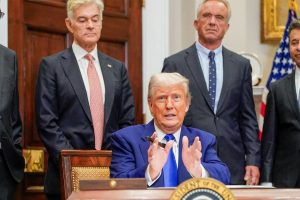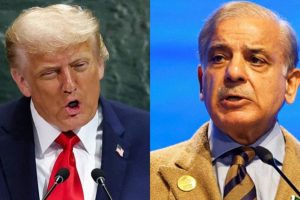As U.S. President Donald Trump’s tariff measures take effect, the United States Trade Representative (USTR) has identified India’s restrictions on U.S. ethanol imports among ten “unfair trade practices” faced by American exporters globally.
In a post on X, the USTR spotlighted India’s ban on ethanol imports for fuel use, and Thailand’s refusal to issue ethanol import permits since 2005. The USTR claimed that gaining access to these markets could unlock an additional $414 million in annual U.S. fuel ethanol exports.
“India bans imports of U.S. ethanol for fuel use. Similarly, Thailand restricts imports of fuel ethanol, requiring permits that haven’t been issued since 2005,” the USTR said.
According to its 2025 National Trade Estimate Report, India—despite its ambitious ethanol blending targets—prohibits the import of ethanol for fuel purposes. Import licenses are also required for non-fuel ethanol, with significant restrictions placed on biofuel imports under various HS headings and subheadings. These measures have been in place since May 2019.
The spotlight on India’s ethanol policy comes even as the country progresses rapidly on its own blending goals. Minister of State for Petroleum Suresh Gopi recently informed Parliament that ethanol blending in petrol had already reached nearly 18% as of February 2025, ahead of the 20% target set for ESY 2025-26 under India’s National Policy on Biofuels.
While India’s ethanol strategy focuses on self-sufficiency and domestic production, the USTR’s push indicates growing frustration in Washington over limited market access.
Meanwhile, the USTR report also highlighted barriers faced in other countries. It pointed to China’s undercutting of U.S. manufacturers through mass production of American flags sold online, Japan’s complex seafood tariffs and quotas costing the U.S. industry $189 million annually, and the European Union’s Carbon Border Adjustment Mechanism (CBAM), which the USTR claims could impact $4.7 billion in annual U.S. exports.
On the diplomatic front, U.S. Secretary of State Marco Rubio and Indian External Affairs Minister S. Jaishankar discussed the growing trade tensions. The dialogue follows President Trump’s recent announcement of a 10% blanket tariff on all imports, including a 26% duty on Indian goods. According to U.S. officials, the conversation aimed to work toward a “fair and balanced” trade agreement.
Jaishankar also shared that both sides are pushing for the early conclusion of a bilateral trade deal, signaling ongoing efforts to de-escalate friction and find common ground amid rising global trade protectionism.





